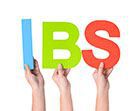
What is Irritable Bowel Syndrome (IBS)?
Irritable Bowel syndrome (IBS) is a common problem that affects your bowel. The bowel is known as the gut or intestine. These words mean the same thing. IBS can cause problems because the muscles in your gut are not working properly and are moving either too fast or too slow. These problems may last a long time but the good news is that there are many ways to relieve them.
What does Irritable Bowel Syndrome (IBS) feel like?
You may feel:
- Cramps and pain in lower abdomen (bowel).
- Bloating and gas
- Diarrhea or constipation, or periods of one then the other
- A rush to make a bowel movement when you first wake up, or during meals
- Relief from pain after a bowel movement
- Not feeling completely empty after a bowel movement
Not everyone feels the same things. You may feel different things than someone else with IBS.
How can I get better?
IBS is affected by your emotions, how much you exercise, and what you eat. Changes to these things can make big improvements in how you feel. Ask your doctor for more information about any of the following therapies that you think could work for you.
What to eat
The food you eat can make a big difference in IBS. Some foods that are good for other people may not be good for you. Sometimes you will need to try different options before you find out what works for you. Here are some possibilities.

- Eating plenty of fiber helps to maintain a healthy gut
- An elimination diet can help you find out which foods disagree with you.
- A FODMaP diet has helped many people with IBS
- Probiotics can help restore a healthy balance of good bacteria in your gut
- Peppermint relaxes muscles in the gut, reducing cramps and pain
Exercise

Another way to feel better is to exercise regularly. Three or four times a week for 25-40 minutes would be ideal. If you do not usually exercise, start slowly and build up to a routine you feel happy with.
Sleep
Sleep problems are common in people with IBS but small changes to nighttime habits can make a big difference.
Mind and Body
Your mind and body are connected. This is why your thoughts and feelings are important in IBS. Taking care of this part of your life will make a big difference. Here are some things you could try.
Gut-Directed Hypnotherapy (GDT)
GDT teaches you to relax until you are almost dreaming. In this deep relaxation you will be able to relax your muscles and picture in your mind a healthy bowel. Many people have found this very helpful to control their IBS. You may also wish to try it on your own, using self-hypnosis.
Cognitive behavioral therapy (CBT)

In CBT you will talk about your thoughts and feelings with a health professional. Together you will learn to make small changes to the way you think. This will help you feel better and more in control of your IBS.
Journaling
Writing down your feelings, thoughts and experiences. This helps release feelings, emotions and memories that you have inside that might be making your IBS worse.
Print Version
References/Resources
University of Wisconsin Integrative Medicine
National Center for Complementary and Integrative Health
International Foundation for Functional Gastrointestinal Health Disorders
Patient Education Materials
- Acupuncture
- ADHD
- Allergic Rhinitis
- Anxiety
- Aromatherapy
- Asthma
- Autism
- Back Pain
- Biofeedback Therapy/Training
- Breathing Techniques
- Cancer Symptoms
- Chiropractic
- Constipation
- Depression
- Diabetes
- Dyslipidemia
- Eczema
- Elimination Diet
- Fibromyalgia
- GERD
- Headache
- Healthy Diet
- Healthy Weight / Obesity
- Heart Disease
- High Blood Pressure
- Inflammatory Bowel Disease
- Insomnia
- Massage Therapy
- Meditation
- Menopause
- Menstrual Disorders
- Osteoarthritis
- Physical Activity
- Probiotics
- Progressive Muscle Relaxation
- Rheumatoid Arthritis
- Supplements
- Tai Chi
- Yoga